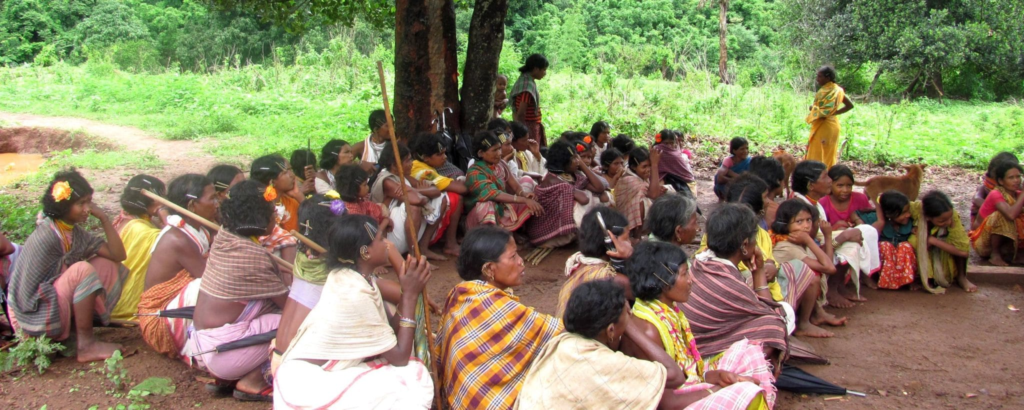Issues Related to Scheduled Castes in India
Relevant for sociology optional Paper- 2 & GS Mains Paper- 2

Issues related to Scheduled Castes in India have been a topic of concern for decades, and despite various efforts, the situation remains grim. Scheduled Castes, also known as Dalits, comprise approximately 16.6% of India’s population, as per the 2011 census. Dalits have been historically subjected to various forms of discrimination, violence, and marginalization in different spheres of life. Although India has a constitutional framework and legislative measures in place to address these issues, the implementation of these laws remains a challenge.
The Indian constitution provides for the reservation of seats in educational institutions, government jobs, and legislative bodies for Scheduled Castes and Scheduled Tribes, also known as affirmative action. However, the reservation policy has been criticized for its limited scope and effectiveness. One of the main challenges of the reservation policy is that it benefits only a small fraction of the Scheduled Caste population. Moreover, there are instances where individuals from dominant castes use fake certificates to avail of reservation benefits, thus denying the actual beneficiaries the benefits they deserve.
Another significant challenge faced by Scheduled Castes is their lack of access to quality education. While the reservation policy has increased access to educational opportunities for Scheduled Castes, the quality of education they receive remains inadequate. Most Scheduled Caste students attend poorly equipped government schools that lack qualified teachers and basic amenities. This results in a high dropout rate among Scheduled Caste students, leading to lower literacy rates and limited opportunities for employment.
The discrimination and violence faced by Dalits in India have also been a cause of concern. Dalits face various forms of discrimination in different spheres of life, such as housing, access to public spaces, and employment. There have been numerous instances where Dalits have been denied entry into temples, restaurants, and other public places, leading to their social exclusion. Moreover, Dalits face violence and abuse, including sexual violence, at the hands of dominant castes. Despite the existence of laws to protect Dalits from such violence, the implementation of these laws remains weak, leading to impunity for the perpetrators.
One of the significant issues faced by Scheduled Castes is their limited access to land and resources. Dalits have historically been landless and have been dependent on dominant castes for their livelihoods. Although there have been efforts to provide land to Dalits, the implementation of land reforms remains a challenge. The lack of political will, corruption, and the dominance of the upper castes in the administration has resulted in the slow implementation of land reforms. This has led to the continued exploitation and marginalization of Dalits in rural areas.
In addition to these challenges, there is also a lack of representation of Scheduled Castes in decision-making bodies. Although the reservation policy provides for the representation of Scheduled Castes in legislative bodies, the actual representation remains low. Moreover, the participation of Dalits in decision-making bodies at the grassroots level is limited due to the dominance of upper-caste groups.
To address these issues, there is a need for a comprehensive approach that addresses the structural and systemic factors that perpetuate the marginalization of Scheduled Castes. The government needs to allocate more resources for education, healthcare, and employment opportunities for Scheduled Castes. The reservation policy needs to be expanded to cover more communities and be implemented effectively. There is also a need to ensure the implementation of laws that protect Scheduled Castes from discrimination and violence. The land reforms need to be implemented in a time-bound manner, and the landless Dalits need to be provided with land. The representation of Scheduled Castes in decision-making bodies needs to be increased through affirmative action.
In conclusion, the issues related to Scheduled Castes in India are multifaceted and require a comprehensive approach to address them. Despite various measures taken by the government, the situation remains grim, and there is a need for urgent action. It is imperative that the government, civil society, and other stakeholders work together to ensure that the rights and dignity of Scheduled Castes are protected. Education and awareness campaigns need to be launched to sensitize people about the issues faced by Dalits and the need to eliminate discrimination and violence. Efforts must also be made to empower Dalits by providing them with skills and resources to improve their economic and social status. Only by addressing these issues comprehensively and collaboratively can we hope to create a more inclusive and just society for all.
For more such free UPSC notes, Articles, News & Views Join our Telegram Channel. https://t.me/triumphias
Click the link below to see the details about the UPSC – Civils courses offered by Triumph IAS. https://triumphias.com/pages-all-courses.php


